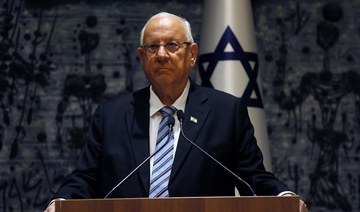LONDON: A controversial sale of items from the Museum for Islamic Art in Jerusalem has been temporarily postponed, according to the museum’s primary donor, amid pressure from Israeli government bodies and President Reuven Rivlin.
The museum, which said it was facing financial hardship even before the coronavirus pandemic forced it to temporarily close its doors, had hoped to raise around $9.8 million by selling over 200 items through Sotheby’s auction house in London. Most of those items were not on public display, said the museum’s director, Nadim Sheiban.
The museum was founded in the 1960s by British-Jewish philanthropist Vera Bryce Salomons to showcase Islamic and Arab culture.
It also holds a large and valuable collection of watches, amassed by the founder’s father David Lionel Salomons, 60 of which the museum also planned to sell.
The museum said the proceeds would be used to keep it afloat and to fund educational programs.
But Rivlin, who lives near the museum, said the collection has a “greater worth and significance than their monetary value,” and said he opposes “the sale of these cultural assets from the region as a whole.”
Israel’s Ministry of Culture and Sport, the Antiquities Authority and the state prosecutor’s office had all looked into ways of halting the sale, without success. But now the auction, slated for Oct. 27, has been postponed.
The museum’s primary donor, the Hermann de Stern Foundation, said in a statement: “The foundation’s management hopes that the postponement will make it possible to reach agreements that will also be acceptable to the culture ministry in the coming weeks.”
Among the items set to go on sale were a helmet that once supposedly belonged to an Ottoman sultan, a Mamluk glass bowl dating from the 13th century, and a page from a copy of the Qur’an dating back over 1,000 years.
The fact that many of the items originated from outside Israel had meant the museum was able to sidestep laws preventing their export, despite their value and historical significance.
But the museum’s most prized items, such as a Breguet watch that once belonged to French Queen Marie Antoinette and valued in excess of $26 million, were not among those put up for sale.
A Sotheby’s spokesperson said raising funds for museums by selling some items, usually less likely to be on permanent display, is a practice it has plenty of experience of facilitating, and the aim of such sales is to preserve the core of a museum’s main collection for the future.
“The displays in the galleries will remain almost entirely undisturbed, remaining intact both from a spectator point of view and also from an academic and curatorial perspective,” Sotheby’s said.














